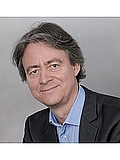Find and Bind: Mastering sweet cell-instructive biosystems by copycat nano-interaction of cells with natural surfaces for biotechnological applications
Projektleiter:
Finanzierung:
EU - FP7;
Living cells are complex entities with remarkable capacity to sense, integrate and respond to environmental cues. The term directional sensing refers to the ability of a cell to determine the direction and proximity of an extracellular stimulus and to convert this information into biochemical signals. So far, the mechanisms of this extremely complex process are to be elucidated. Undoubtedly, carbohydrates are a class of molecules which together with the proteins span a large spectrum of these mechanisms: from those that are trivial to those that are crucial for the development, growth, function or survival of an organism. Find and Bind aims to explore the potential of this class of molecules to mediate specific recognition events and therefore to provide modulation of biological processes. Approaching and employing the nanoscale mechanisms of the interactions of cells and their physiological milieu Find and Bind will create biological design criteria for the development of new materials and devices constructed from these materials. Taking the cell-matrix adhesion to the third dimension by re-creating both signals and timing of natural occurring events will be applied to develop third generation polysaccharide based constructs. Combining nanostructured scaffolds from naturally derived polymers and the incorporation of biological signals will provide inherent informational guidance in recreating cell-cell interactions and control tissue formation in vitro and in vivo. The long-term innovation potential of the developed constructs as
- (i) 3D cell instructive materials able to restore and enhance the functions of healthy tissues;
- (ii) Biosensors and
- (iii) Surfaces for selective differentiation of stem cells will also be in the targets of this proposal.
Schlagworte
glycans, mesenchymal stem cells, sensors, tissue engineering
Kontakt

Prof. Dr. habil. Thomas Groth
Martin-Luther-Universität Halle-Wittenberg
Naturwissenschaftliche Fakultät I
Heinrich-Damerow-Str. 4
06120
Halle (Saale)
Tel.:+49 345 5528460
weitere Projekte
Die Daten werden geladen ...

